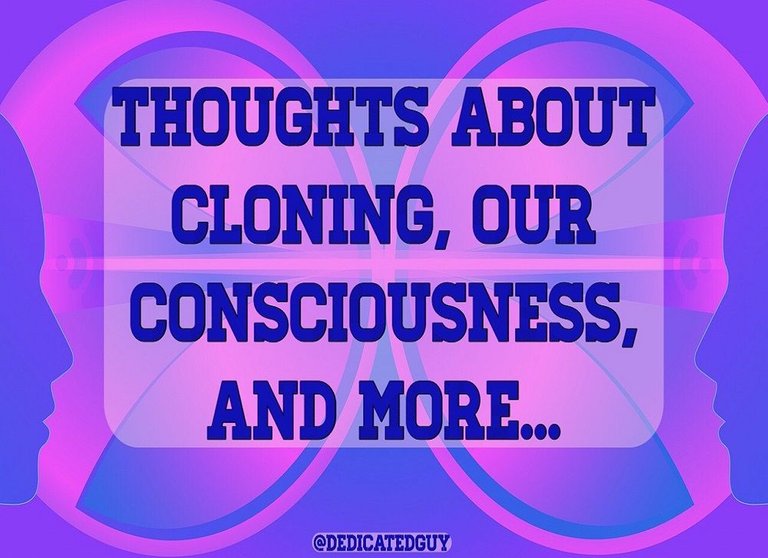.jpeg)

Introduction
We all know that, where there is a society, there are people who judge. Maybe because of this things like hairstyles, to the clothes we wear, including the body language that is used and the products that are consumed, everything that unites us to life in a community is affected by tons of labels designed in the most sophisticated ways by people who are experts in marketing.
Yesterday, urban tribes were responsible for maintaining these codes of looks and behavior. Today, some people’s personality have been diluted in a much broader concept: “poseur”, which is defined as:

A person who behaves affectedly in order to impress others. |Source
This word is used as a reference towards those individuals who pretend to be something they are not. Young people are the most responsible for extending the use of this word to refer to individuals who copy their looks without previously having honestly adopted their likes, their values and in general, their ways. This happens obviously on the street, a place in which for some people to exemplify their personality means, in part, to renovate themselves.
Thus, this phenomenon in the past, was about imitating the looks of a particular group without doing the same with their ethics, which would be what gives meaning to the whole idiosyncrasy of its members, their looks, the shared sensations transmitted by the type of music they enjoyed, the distinct way of dressing to recognize each others, among other things.
Imitation is the partial or complete reproduction or performance of an act that is stimulated by the perception of a similar act by another animal or person. Imitation or copying behavior if clearly evident in humans and animals from the infancy itself. | Source
Today this is no longer the case. Now, the poseurs have become separated of those little “tribes” from before, they have become part in the day to day of a large part in our modern social life. It consists in giving the desired image, but not any desired image, a very specific one that which allows people to merge with the crowd, not to stand out. Now, this way of pretending is a product for the taste of everyone, easily marketable in order to be adopted everywhere.

...people will change their behavior to align with the social situation at hand. If we are in a new situation or are unsure how to behave, we will take our cues from other individuals. | Source
This kind of people is no longer interested in posing for a little community or small social group. Now, they want to appear to be something much wider, for all tastes, so that everyone can enjoy having a look at whatever they are doing.

Social image in the modern day
This social tendency, as we can see, has appeared in the same breeding grounds in which the urban tribes appeared, I mean, in the externalization of habits related to life beyond work. In the urban tribes of the past, this informal habits were related to spaces of dissidence: concerts, the world of graffiti, skating in public places and other similar things, in which the elements there would be copied by others were created in the first place with the goal of maintaining appearances and sharing the same social image.
Today, that “informal habit” means, simply and plainly, leisure time.

Not all people share the struggles of any political movement we might encounter, nor share for example, the likes of bikers group that love to ride together and own the road. Nevertheless, far more people enjoy going to music festivals, taking trips or meeting from time to time with friends. And the vast majority of these people obviously have access to each others profiles on social networks.
Social image, or the views that others have of us and our groups, plays a role in a wide array of psychological processes, including impression management, interpersonal relationships, mate selection, intragroup and intergroup processes, the experience and expression of emotion, gender differences in behavior, and the construction and maintenance of social status. | Source

Now everything is digital
It is in the realm of our online social networks where the new poseurs start to show off their lives. If in the past they wanted to adopt some elements of an easily recognizable local band for example, today the same is done to pretend to be a normal person always aware of the last trending subjects, with typical influences well assimilated by everyone else and typical situations of leisure moments, all of that portrayed in social media profiles.
If before this was exercised in the street, today it is exercised from the solitude of our smartphones, at the time of selecting pictures and tapping the share image button. It is something that everyone can do with simply access to technology, regardless of the social dynamics or the habits of the place in which the person is living.
The opinion of others has been a part of identity development for more than a century. The "looking-glass self" is a psychological concept that suggests we develop our sense of self based on the perceptions of those we interact with. - Andrea Letamendi. | Source
The selfie stick as example

An example of this is the very rapid popularization of the selfie stick, whose function is to make it easier to capture an event and be able to properly say "I was here". The new poseurs are very refined and are now based on gaining attention towards specific things, one might think something like: “I was here, and for some reason I show you this. I've also been washing the kitchen, but for some reason I'm not showing it to you. I want you to know that I've been there, but not here. And if necessary, I'll buy a stick to take a picture of me when there's no one to accompany me”
It is common to see people posing when they are going to take a picture. Sometimes there can be uncomfortable seconds, and in those moments that are lacking comfort, if we pay attention to the faces of the people who are posing, we can see the friction between the look they want to project and what they are really doing. It is not done in order to stand out, but to join with the abstract image of a person who lives the “high live”.

Conclusion
The tendency to act like this is the result of globalization in social interactions. If two years ago people mocked at the tourists who traveled with a selfie stick, today it is completely normal to use them. If a few years ago people wanted to distinguish themselves by being different than others, today they try to be more like the members of our global community.
Whether it occurs consciously or unconsciously, in face-to-face interactions or online, copying is associated with conformity. | Source
More and more, our social life is based on the profiles we have on different websites. Increasingly, the image we give is similar to the one we want to give through these virtual profiles. Hopefully, in this eagerness to show what people are, the ways of living life in a spontaneous and original way are not forgotten.
What do you think about this topic? Have you suddenly found yourself mirroring another person?
References
lumenlearning – social psychology
healthandmindcare why others copy
mashable - psychology of selfie
Images sources
All images are from pixabay

If these titles sound interesting to you, I assure you the articles will be even better!


Thoughts about cloning, our consciousness, and more... |

Let's talk about the effects scents have on us |

Meet FarmaTrust: improving the pharmaceutical industry |

Interesting, lots of great points here.
beautifully composed and straight to the point. There is no doubt that social media has revolutionalized how people view themselves. People will only show you the aspects of their lives they want you to see on social media. The majority give this 'pseudo-appearance' of having a perfect life.
Perhaps, such is not for me. I use to but not anymore. Hardly will you find any of my pics on social media except for for identification purpose.
well done for this lovely piece
Exactly, I believe that is the new normal.
With time I think people might get tired of it and start to not care about it anymore. That's my case with FB for example.
Our desire to be socially accepted or to belong to certain groups, movement or culture often clouds our perspective of our own self. Not surprisingly, when this happens, it results in experiencing a lot of negative outcomes like misunderstanding by others, social rejection and existential problems.
When every different individual is the same as others in the group, then nobody actually is individual anymore.
Articles like yours are a step forward towards better self understanding and preventing the negative outcomes of such behaviour. Great write-up :) Cheers !
Followed.
Thanks for your kind words mate, I really appreciate it!
This is the downside of the digital age we live in and the extensive media coverage. Like on any age before us there are the positives and negatives. I think that young adults and teenagers are in the process of finding themselves and tend to conform to a popular image.
That might very well be the case with really young people.
People always judge, even if we do good things they will. The most important is to not care about what people say and keep going and never give up.
Yes, the most important thing is what we think of ourselves, not what others think.
That was a great post, @dedicatedguy.
Maybe imitation is part of the human instinct of survival. Yet, I still don't get how people just blindly follow trends or adopt beliefs based on what the others think. Who wants to be part of the crowd anyway?
True. I think we're the only generation in history recording ourselves achieving nothing.
No just humans, animals imitate themselves too. It probably makes bonding easier.
haha well yes, although we are also the first generation with so many tools to record everything we do.
Having an online presence on Facebook in particular is a tough balance. Since many of those who follow you are actually family and friends, you want to share news about the children, or the pets, or something the family is doing together. You also become conscience of and try to avoid what some will do, and that's constantly complain or share every bad moment ever.
So, it's a double edged sword. You want to share your life with loved ones that you don't see very often, but at the same time, you don't want to share ALL of it. So, it's really easy to set up a false facade just trying to share.
That's certainly not to say that there aren't people who put up fronts. There definitely are. I just think that quite a bit of what you might see from family and friends is trying to share yet keep it light.
As for your question, no I don't find myself mirroring anyone. I've never really found a reason to do so. I can't keep up with the Joneses, so why bother? :) I've gotten to the point now where I think I'm pretty happy with myself and my life on an ongoing basis (could always be better and could always be worse) and I believe I'm aware of what I need to work on to improve myself as a person, so I don't see how mirroring someone else, on or offline is really going to help me or people's perceptions of me.
I get this, and the same happens to me. If it wasn't because of social media I wouldn't be able to keep with important people in my life.
hahahaha awesome movie!
I think that's the sweet spot we all want to achieve :)
Cheers mate!
Really, @dedicatedguy, the self-image of many people in today's society is usually the copy imposed upon them by certain people.
We are fond of copying ourselves in the world of today. We are mostly attracted by the social tendency of foreign societies, especially those with a higher standard of living, or higher technologies.
This is the true reason behind having world development and globalisation. But, it can have a negative impact at certain times.
We will usually want to adopt a higher self-image, than we may have being worth. But, the psychological conception of personality doesn't support many of those people who may have copied the other people excessively, even to the point of meeting negative consequences in the interaction.
I am @gboyegaogunmola. I am a writer. I want people to solve personal problems, through reading my personality literature.
I believe in your concept. Although, we are human beings, who learned to socialize and conform to the societal ethics, the trend of social-imitation in the digital age is becoming alarming. People tend to be copying other people, not bothering whether they have conformed within their own society, or not.
Certain things are perceived as of international standard. But, some things may not be really ethical or accepted in a particular society.
Copying the others may be positively oriented at certain times. Yet, it can be attributed to a negative way of life at the other times.
In this way, our social tendencies are only of appropriate use at certain times.
Absolutely true. The looks from people in developed countries are of great influence in under developed ones.
mmm could share an example of this?
Of course, babies for example copy all the time and its good for them.
I have the belief that what is of international standard is what should be accepted worldwide, @dedicatedguy.
But a society that is underdeveloped or below the internationally-acceptable standard, may be found going ethically or socially against the perceived international standards and codes of conduct.
In a situation of going to this place, you will just find out that the international tendencies aren't truly recognized, or they are actually underrated.
This post has been upvoted and picked by Daily Picked #35! Thank you for the cool and quality content. Keep going!
Don’t forget I’m not a robot. I explore, read, upvote and share manually ☺️
Nicely done, dg. Very thoughtful.
Great reaction, too. Congratulations!
I've been working on something
I'm wondering whether it might be useful to anybody...
best wishes